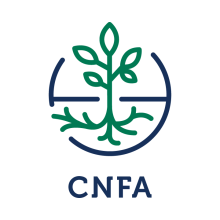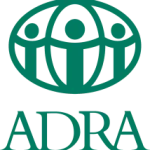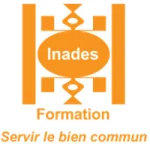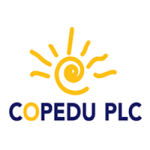CNFA is an international agricultural development organization that specializes in the design and implementation of sustainable, enterprise-based agricultural initiatives. We work with businesses, foundations, governments, and communities to build customized local and global partnerships that meet the world’s growing demand for food. Since our inception in 1985, we have designed and implemented enterprise-based, agricultural development initiatives to facilitate market access, enhance agribusiness competitiveness, increase productivity, and improve access to inputs and financing in 47 countries around the world.
Website: https://www.cnfa.org
Section 1 – General Information
|
Solicitation Type: |
Request for Applications (RFA) |
||||
|
RFA Number: |
CNFA-HW-RFA-004-11-2024 |
||||
|
Grant Purpose/ Title: |
Request for Applications for market actors to increase the availability and affordability of quality compost in the Karongi Rubavu and Bugesera districts. |
||||
|
Granting Party: |
From: Cultivating New Frontiers in Agriculture (CNFA) For: USAID Under: Feed the Future Rwanda Hinga Wunguke Activity, No. 72069623CA00001 |
||||
|
Release Date: |
12 November , 2024 |
||||
|
Point of Contact for Question and Application Submission: |
Name: Title: Email:
|
Jean Pierre Murekezi Extension Advisor coinvestmentfund@cnfarwanda.org with copy to jmurekezi@cnfarwanda.org |
|||
|
Questions: |
Questions Deadline: November 30, 2024 at 5:00 CAT |
||||
|
Instructions: Questions must be submitted in writing via application e-mail; phone calls will not be accepted. Only CNFA’s written answers will be considered official and carry weight in the solicitation and subsequent evaluation. Verbal information received from CNFA or any other entity should not be considered an official response to any questions. |
|||||
|
Application Submission: |
Application Deadline: December 21, 2024 at 5:00 CAT Applications received after the specified deadline will be considered late and will be considered only at the discretion of CNFA. |
||||
|
Via: |
|
☐ Hard copy |
☐ Email or Hard copy |
||
|
Language: Applications will be accepted in English. |
|||||
|
Instructions: Applications will only be accepted in the format provided in this solicitation. Applicants are additionally instructed to:
|
|||||
|
Terms and Conditions: |
|
||||
|
Language: |
Response to this CNFA-HW-RFA-004-11-2024 will be accepted in English |
||||
|
Attachments: |
The following Attachments are included and hereby incorporated as part of this RFA:
|
||||
Section 2 – Program Description
2.1. Introduction: Hinga Wunguke is a five-year Activity of USAID in Rwanda and implemented by Cultivating New Frontiers in Agriculture (CNFA). CNFA is an international agricultural development organization that specializes in the design and implementation of sustainable, enterprise-based agricultural initiatives. Using a market systems development (MSD) approach, Hinga Wunguke aims to increase incomes and improve nutritional outcomes by sustainably increasing agricultural productivity and strengthening domestic consumption of and markets for nutritious agricultural products. Hinga Wunguke is designed to achieve four complementary objectives: (1) sustainably increase agriculture productivity, (2) increase farmer and agribusiness access to finance, (3) improve market and nutrition outcomes for producers, and (4) strengthen the enabling environment to foster market-driven agriculture.
2.2. Co-Investment Fund (CIF) Purpose:
The Co-Investment Fund (CIF) is a matching grant facility dedicated to co-investing with private-sector partners in new or existing business models and technologies, expand existing models to new markets or products, and support achievement of Hinga Wunguke objectives with prioritization of the inclusion of women, youth and persons with disabilities (PWDs). The CIF is used to leverage private sector investment and formalize partnerships with market actors to inclusively strengthen food market systems in the Hinga Wunguke target districts.
Awards resulting from the CIF will represent a partnership between CNFA and CIF grant recipients. Applicants will be required to match investments from their own businesses, or own funding source, to ensure ownership and sustainability of new business activities or innovations introduced through the grant mechanism. Hinga Wunguke recognizes that some co-investment partners may need capacity building support or technical assistance to carry out these activities. Applicants are encouraged to specify their needs for technical assistance and/or training in their application, which will be considered for approval and funding on a case-by-case basis.
Target Value Chains and districts: Hinga Wunguke is looking for partners with sustainable business models to increase the availability and affordability of quality compost focusing on the Karongi, Rubavu and Bugesera districts. Applicants should target farmer customers or suppliers of raw material from the following value chains: maize, Irish potatoes, orange-fleshed sweet potatoes (OFSP), beans (all varieties), soybeans, tomato, carrots, passion fruit, avocado, mango, and peas (dry and green peas).
2.3. RFA Purpose: This RFA seeks grant applicants to co-invest with Hinga Wunguke in increasing the availability and affordability of good quality compost in the Karongi, Rubavu, and Bugesera districts to improve soil health and productivity in those districts. Compost is one of the key inputs to improve soil health by enhancing its structure, boosting nutrient content, and promoting microbial activity. This leads to better water retention, reduced erosion, and higher crop yields, increasing agricultural productivity. Additionally, compost reduces the need for chemical inputs, making farming more sustainable. By improving soil’s moisture-holding capacity, compost helps farmers better cope with droughts and erratic rainfall, thus enhancing resilience to climate change. It fosters healthier ecosystems, enabling farmers to maintain productivity despite changing environmental conditions.
Illustrative activities eligible for funding under this RFA include:
- Production of compost using organic wastes from households and markets as an alternative source of raw materials to reduce reliance on grass from forests and fields.
- Establishing sorting/collection points for organic municipal wastes as raw materials to produce quality compost
- Supporting existing compost businesses to improve their product and expand their market
- Technologies with innovations that improve the quality of compost, reduce production cycle and increase affordability of compost.
- Compost processing equipment and materials to speed up the decomposition process.
Partnerships awarded under this partnership are expected to contribute to the following Hinga Wunguke indicators :
- Number of individuals participating in USG food security programs
- Number of hectares under improved management practices or technologies
- Number of individuals in the agriculture system who have applied improved management practices or technologies with USG assistance
- Value of sales of quality inputs, services, and technologies promoted by market actors as a result of USG assistance
- Value of new private sector investment leveraged by the USG to support food security and nutrition.
CNFA expects grants awarded under this RFA to meet the following parameters:
|
Estimated Value: |
up to $50,000 per grantee (approx. 67.4 million RWF) |
|
Anticipated Period of Performance: |
18 months of partnership per each successful grantee |
|
Minimum Grantee Leverage Contribution |
40% |
|
Target Geographic Location: |
Karongi, Rubavu and Bugesera districts (Required) Must be reaching farmer customers in these districts. Business may be located elsewhere but serving farmer customers in the targeted districts. |
|
Applicants must target farmer customers growing the following value chains: |
Maize, Irish potatoes, sweet potatoes (orange fleshed and other varieties), beans (all varieties), soybeans, tomato, carrots, passion fruit, avocado, mango, and peas (dry and green peas). |
|
Target Recipients: |
Youth and women-led companies, SMEs, agricultural cooperatives, private companies. |
2.4. Award Mechanism: CNFA anticipates awarding In-kind and Fixed-amount Award-type grants to selected applicants. Other grant mechanisms may be considered depending on the results of a specific applicant’s application, pre-award assessment, and site visit, as applicable. Award mechanism(s) are defined as:
- In-Kind Grant: CNFA acts as the direct payer of grant costs and is responsible for the procurement of all goods and/or services stipulated in the grant budget. Funds are not provided directly to the grantee. All expenses must adhere to CNFA Procurement Policy and USAID regulations. The grantee will work closely with CNFA to plan procurement needs to support grant achievement.
- Fixed Amount Award: Intended to reduce administrative burden and record-keeping requirements for the grantee, grant payments are based on completion of milestones (activities) that demonstrate performance for results. Goals and activities must be measurable, and there must be adequate cost, historical, or pricing data available to establish an award value. Real property cannot be purchased (i.e. land, land improvements, structures, and appurtenances thereto – excluding moveable machinery and equipment).
Section 3 – Applicant Eligibility
3.1. Eligibility Requirements: To be considered eligible for grant receipt, applicants must meet the following eligibility criteria:
|
Category |
Requirement |
|
Administrative |
|
|
Programmatic |
|
|
Financial |
|
|
Compliance |
|
3.2. Ineligible Applicants: The following entities are ineligible for grant funds:
- Government Ministry, Agency, or another public agency
- Entities with a conflict of interest or appearance of a conflict of interest with CNFA, Hinga Wunguke, USAID, or CNFA’s implementing partners (USDA Food for Progress (FFPr)
- Entities with key staff who are direct relatives (spouse, child, parent, sibling) of CNFA, Hinga Wunguke staff, USAID staff, or CNFA’s implementing partners’ staff FFPr
- Entities or members that appear on the US Department of Treasury Office of Foreign Assets Control (OFAC) Specially Designated Nationals (SDN) and Blocked Persons list, the UN Security Council consolidated list, or in the System for Award Management (SAM) database
- Entities or members engaged in any activities related to Trafficking in Persons
- Entities or members engaged, transacting with, or providing resources to individuals or organizations associated with terrorism
- Entities that have been debarred, suspended, or otherwise considered ineligible for an award by the US Government
3.3. Unallowable Costs: Applicants may not use grant funds for any of the following:
- Private ceremonies, parties, celebrations, or “representation” expenses
- Purchases or activities deemed unnecessary to accomplish grant purposes, including any applicant headquarters’ expenses that are not directly linked to the implementation of the proposed project
- Previous obligations and/or bad debts
- Fines and/or penalties
- Creation of endowments
- Indirect costs – such as overhead or indirect fringe – unless the applicant has documented proof of such rates through audits, USG-issued NICRA, or is claiming the de minimis rate
- Any other costs unallowable per the applicable Cost Principles
- While not unallowable, applicants are discouraged from including restricted goods in their application(s) unless they are critical to the accomplishment of grant objectives, which include: agricultural commodities, motor vehicles, pharmaceuticals, pesticides, used equipment, or fertilizers. Purchase of these goods requires additional approvals from USAID before they may be procured.
- Ineligible goods, including military equipment; surveillance equipment; police or law enforcement equipment; abortion equipment and services; weather modification equipment; luxury goods; and gambling equipment.
- Construction, defined as construction, alteration, or repair (including dredging and excavation) of buildings, structures, or other real property, including – without limitation – improvements, renovation, alteration, and refurbishment. Construction includes, without limitation, roads, power plants, buildings, bridges, water treatment facilities, and vertical structures. It does not include the emplacement and removal of prefabricated structures and humanitarian structures designed and constructed to be readily moved, erected, disassembled, stored, and reused (i.e. relocatable building) unless the emplacement and removal requires site preparation work that meets the definition of construction.
Section 4 – Application Evaluation
4.1. Evaluation Criteria: All applications submitted in response to this solicitation will be evaluated in accordance with the following criteria:
|
Criteria |
Description |
Points |
|
Business Model – Will/skill and Sustainability
|
|
20 points |
|
Shared Goal and Values
|
|
25 points |
|
Budget |
|
15 points |
|
Leverage Contribution
|
The applicant proposes an appropriate amount of cost share/leverage that they can be held accountable for. Higher grantee co-investment will be favored if considered reasonable and achievable, especially from applicants that exceed the 40% minimum required contribution. |
10 points |
|
Implementation Plan |
The applicant demonstrates a well-thought-out implementation plan with sufficient and realistic detail, including a sustainability and scalability plan of the proposed business solution. |
15 points |
|
Expected impact |
Envisions shared goals and impact contributing to the Hinga Wunguke indicators outlined under Section 2.3. “RFA Purpose.” |
15 points |
|
Total |
100 |
|
4.2. Evaluation and Pre-Selection:
Members of the Hinga Wunguke Grant Technical Evaluation Committee will evaluate applications in accordance with the above selection criteria. Hinga Wunguke will notify successful applicants if their application is considered acceptable. Hinga Wunguke may contact unsuccessful applicants if time and resources allow.
If the application is considered acceptable for pre-selection, CNFA will contact the applicant to engage in further discussions. A decision to engage in a more in-depth and specific discussion following initial selection is not a commitment to funding; it is simply a decision to move forward in the collaborative and joint effort to develop an impactful grant project.
- If discussions do not – inHinga Wunguke’s sole opinion – result in the development of a grant activity worthy of further pursuit, CNFA will inform the applicant that it is no longer interested in advancing the grant application.
If the discussions result in a promising design and concept, CNFAwill inform the applicant of that determination. Pre-selected applicants will be required to complete additional due diligence checks, which may include but are not limited to:
- Pre-Award Assessment: to assess the operational, administrative, financial, and governance structures of the applicant
- Environmental Assessment: to assess the impact on the environment based on the application received
- Site Visit: to verify the information asserted in the application
- Vetting: to ensure the applicant and its principals are not excluded from receipt of funding
If the due diligence uncovers no major issues, CNFA will provide the necessary instructions, technical requirements, and the next steps of grant award.
Section 5 – Authority and Governing Regulations
Any grant awards by Hinga Wunguke under this Solicitation are made under the authority of the US Foreign Affairs Act and USAID’s Automated Directive System (ADS) Chapter 303, “Grants and Cooperative Agreements to Non-Governmental Organizations,” and 2 CFR 200. Grants administered by CNFA will adhere to the terms of the applicable USAID Standard and Required as Applicable Provisions, as well as the Hinga Wunguke grants procedures. Hinga Wunguke is required to ensure that all applicants receiving USAID grant funds comply with the requirements found in these regulations, as applicable to the respective terms and conditions of individual grant awards.
Applicants are made aware that USAID retains the right, at all times, to terminate, in whole or in part, the Hinga Wunguke ’s grant-making authorities or any grants in progress.
ATTACHMENT A – GRANT APPLICATION FORM
General Information
Submission of this grant application is FREE OF CHARGE. Applicants are solely responsible for submitting applications. Hinga Wunguke will not reimburse expenses associated with the preparation and submission of application materials. CNFA and USAID reserve the right to decline any application received. Incomplete applications will not be considered for evaluation.
PART 1 – APPLICANT CERTIFICATION
The following letter must be placed on letterhead and completed/signed/stamped by a representative authorized to sign on behalf of the applicant:
To: Hinga Wunguke Co-Investment Fund Team
Kimihurura, former RPF secretariat on KG 28 Avenue No. 7, Kigali, Rwanda/Partnership and Investment Manager
Reference: CNFA-HW-RFA-004-011-2024
To Whom It May Concern:
We, the undersigned, hereby provide the attached application to perform all work required to complete the activities and requirements as described in the above-referenced RFA. Please find our application attached.
We hereby acknowledge and agree to all terms, conditions, special provisions, and instructions included in the above-referenced RFA. We further certify that the below-named firm—as well as the firm’s principal officers, and all commodities and services offered in response to this RFA —are eligible to participate in this procurement under the terms of this solicitation and under USAID regulations.
Furthermore, we hereby certify that, to the best of our knowledge and belief:
- We have no close, familial, or financial relationships with any USAID, CNFA, CNFA implementing partners, or Hinga Wunguke staff members.
- We have no close, familial, or financial relationships with any other applicants submitting proposals in response to the above-referencedRFA.
- The prices in our offer have been arrived at independently, without any consultation, communication, or agreement with any other applicant or competitor for the purpose of restricting competition;
- All information in our application and all supporting documentation is authentic and accurate;
- We understand and agree to CNFA’s prohibitions against fraud, bribery, and kickbacks;
- We understand and agree to CNFA’s prohibitions against funding or associating with individuals or organizations engaged in terrorism or trafficking in persons activities.
We hereby certify that the enclosed representations, certifications, and other statements are accurate, current, and complete:
|
Signature:
|
|
|
Name and Title of Signatory:
|
|
|
Date: |
|
|
Company Registration or Taxpayer ID Number (TIN): |
|
PART 2 – GRANT APPLICATION
|
Date of Submission: |
|
|
Basic Information |
|
|
Name of Organization: |
|
|
Company’s Legal Status: |
|
|
ID/TIN Number: |
|
|
UEI Number (if available): |
|
|
Date of registration (please provide registration documentation): |
|
|
Partners/Founders: |
|
|
|
|
|
|
|
|
|
|
|
Tel: |
|
|
Address: |
|
|
Grant Requested: |
|
|
Grant Amount (RWF): |
|
|
Grantee Contribution Amount (RWF): |
|
|
Information of Authorized Point of Contact(s) |
||||
|
Contact Person |
Position |
Address |
Tel. |
|
|
|
|
|
|
|
|
|
|
|
|
|
Organizational History:
Provide a brief overview of your organization’s mission, values, and purpose.
|
Write response here |
Provide a brief description of your organization’s impact, history of operations with regards to compost making as a business in Rwanda, and years of experience specifically related to the proposed project.
|
Write response here |
Provide information about the qualifications and professional backgrounds of your organization’s ownership and key staff members. Please detail the management capacity of the proposed staff to implement the proposed business model.
|
Write response here |
Project Goal & Activities:
Describe in detail the proposed project goal. Please stipulate how the proposed project will produce high-quality compost at an affordable price for farmers from either of the target districts (Karongi, Rubavu and Bugesera)
|
Write response here |
Please provide the anticipated implementation plan with the required activities for the proposed project. Please also provide a realistic timeline to complete the activities.
|
Write response here |
Explain the expected impact the project, if supported, will have. Please provide socio-economic and environmental details of this impact.
|
Write response here |
Explain how the proposed business model will be sustainable once the grant is completed as well as its scalabity plan in other districts
|
Write response here |
Please explain your compost making technology, source and types of raw materials used, production cycle, price per 1 kg of ready to use compost at farmer level, current production capacity, demand and supply situation, distribution channels, current key markets/customers, current challenges and the proposed solutions overcome them. Please include any innovative methods that are environmentally friendly like the ones promoted by Hinga Wunguke (e.g., using organic municipal waste, adding volcanic ash as an additive, making compost under shed, reduced production cycle etc.)
|
Write response here |
Please use the table below to highlight the expected impact of this proposed co-investment over the course of three years. Please also add any other targets or expected impact unique to your business model.
|
S/N |
Target description |
Year 1 |
Year 2 |
Year 3 |
Total |
|
1 |
Estimated quantity of quality compost to be produced in (MTs) through this partnership |
|
|
|
|
|
2 |
Estimated number of hectares under recommended rates of quality compost in (Ha) through this partnership |
|
|
|
|
|
3 |
Estimated number of farmers to be reached through this partnership |
|
|
|
|
|
4 |
Estimated amount to be invested by private sector (grantee) to support food security |
|
|
|
|
|
|
Other |
|
|
|
|
|
Include description of other expected impact if applicable: |
Social & Environmental Considerations:
Please provide details on how the proposed project will positively impact and empower marginalized groups (women, youth, and PWDs). Please also highlight how USAID support will improve social inclusion within targeted communities.
|
Write response here |
Describe the site for the proposed project, specifically, distance from water resources; forests; natural reserve territories; agricultural lands; monuments of cultural heritage; populated areas; public buildings; availability of running water, sewerage, electricity, and gas to the site; road access to the site; and any anticipated impacts.
|
Write response here |
Describe the need for application of any form of agrochemicals (e.g., pesticides, fertilizers etc.) or waste disposal as a result of the project.
|
Write response here |
Describe your organization’s experience in applying environmental, health, and safety procedures. Describe planned safeguarding and mitigation measures to reduce possible environmental impact resulting from the proposed project.
|
Write response here |
ATTACHMENT B – ACTIVITY BUDGET (EXCEL)
All applicants must use the Excel spreadsheet template embedded below to detail the costs of the activity. All costs must be explained in detail under budget notes of the template to better understand how the applicant has estimated each line item. Successful applicants will be required to justify all costs when requested by Hinga Wunguke.
Attachment





